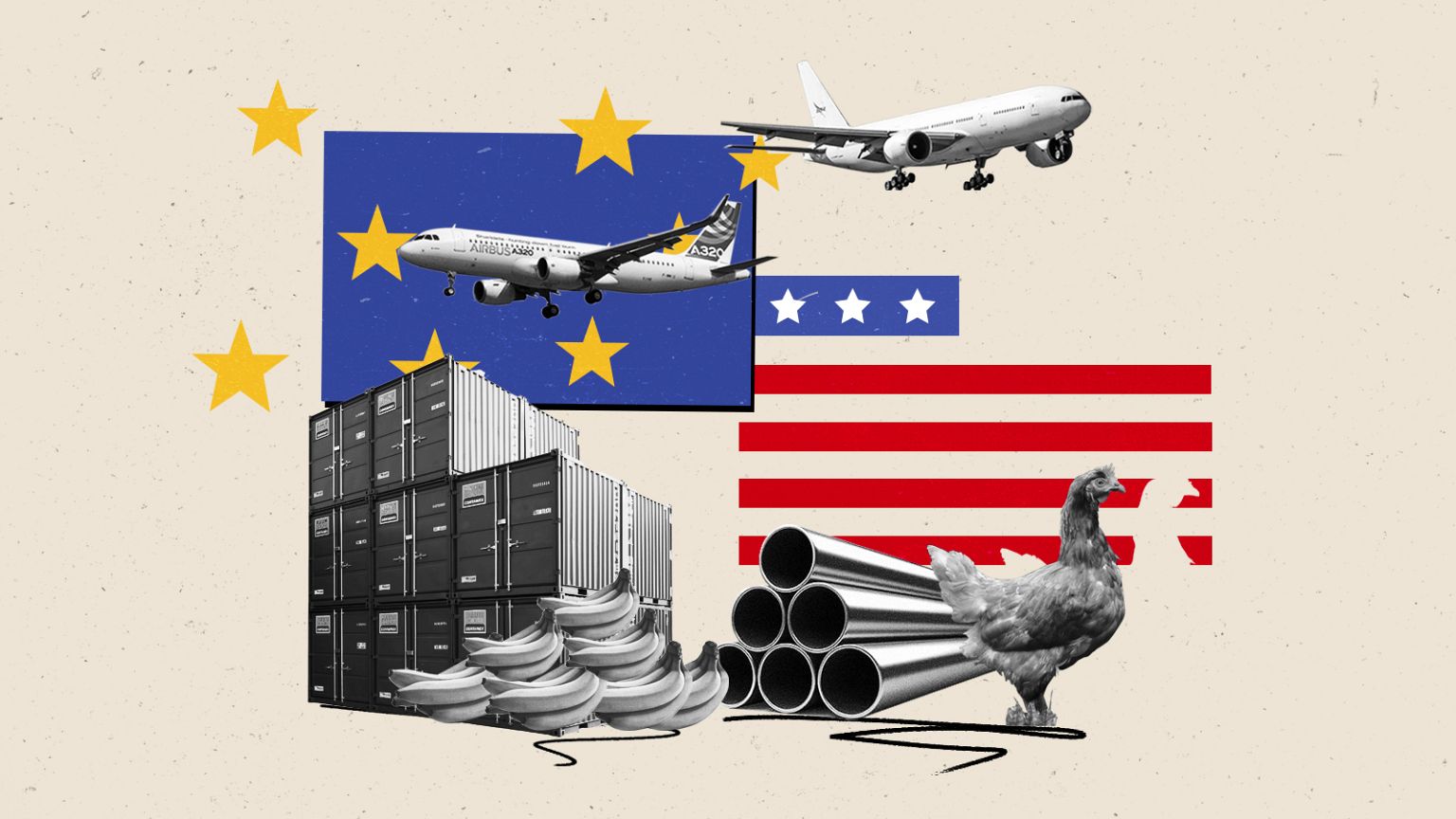EU strategizes amidst escalating trade disputes with US and China
Caught amidst trade altercations with two of the world’s heavyweights, the United States and China, the European Union (EU) finds itself treading on unaccustomed ground. The challenge before the EU now is developing strategies that take into account the vast disparities and the significant likenesses between the two disagreements. The inception of the trade dispute with the US was, to some extent, startling, although predictable due to President Donald Trump’s transparent antagonism towards the EU and his fundamental misapprehension of trade workings.
President Trump has been vocal about his dissatisfaction with the US trade deficit with the EU. However, he overlooks an essential fact that the deficit exists merely with goods, and in the arena of services, it is the US that enjoys a surplus with Europe. The president’s imposition of tariffs metaphorically equates to handicapping the US economy, accomplishing little in terms of rectifying current account imbalances, which are predominantly an attribute of America’s low savings rate.
This conflict goes beyond mere trade disagreements; it carries substantial political weight. The current US administration has embarked on a campaign of intimidation, endeavoring to leverage concessions out of Europe, even at the risk of jeopardizing US economic growth. Trump seems confident in his belief that his tactics will force Europe to give in, a move he can then portray as a triumph in domestic politics.
The trade feud with China is of a more predictable nature and yet it carries a higher potential risk. It poses a substantial threat to the integrity of the European economy. China, since its induction into the World Trade Organization (WTO) in 2001, has steadily gained ground on more evolved economies in terms of productivity, albeit lagging regarding wages and social norms.
Despite the lag on social norms and wages, China is at the helm of innovation in a multitude of industries, while domestic labor costs are much lower in comparison to the world’s affluent nations. This perfect blend of cutting-edge technology akin to Silicon Valley, lower labor costs characteristic of developing economies, and a workforce that ranks amongst the world’s largest, positions China as a formidable foe. As a result, many branches of European industry face existential threats.
The competition is no longer confined to traditional arenas such as steel and aluminium. It now encompasses various sectors including automobiles, chemicals, pharmaceuticals, machinery and equipment, amongst others. Similar to the US tariffs, political implications significantly influence China’s actions.
China’s attempts to accumulate industrial overcapacity, a primary reason for trade frictions with Europe, can be interpreted as a move to broaden its influence globally and maintain internal governance. The Chinese leadership’s choice to disregard repeated pleas to pivot towards domestic consumption enhancement, which would uplift their populace’s living standards, is indicative of this strategy.
The historical fall of the Greek city-states to the expansive Roman empire was attributed not to a dearth of resources, but to obsolete political systems, lack of unity and self-complacency. This observation made by Greek historian Polybius, could be a poignant symbol for current day Europe. The rise of China stirs anxiety in the US, fearing the ‘Thucydides Trap’, a situation where a reigning power perceives a rising challenger as a precursor to war. For Europe, it illuminates the ‘Polybius Trap’, indicating potential deterioration.
If Europe aspires to maintain its status as a global influencer, it must be ready to endure temporary economic adversities for the sake of safeguarding its long-term strategic pursuits. Buckling under the weight of unreasonable US demands may bring short-term growth, but the repercussions in the future would be catastrophic. Not merely due to the damaging effects of the compromises themselves, but the future expectations they would set from a US administration eager to acquire more.
Replacing the US with China would be equally perilous, effectively replacing one crisis with another and creating a new dependency that could be taken advantage of easily. Opting for either of these paths is a short route to subordination.
The era of conflicts between great powers is hopefully a transient phase. Meanwhile, Europe needs to chart out strategies to augment its resilience. This entails discovering new growth drivers, advancing towards a ‘savings and investment’ union, eliminating remaining internal trade barriers, and spurring public investments using new mutual borrowing methods.
To facilitate this, the EU could contemplate organizing a unique summit in the upcoming fall aiming to devise a ‘growth-engine’ strategy for the subsequent two years. This approach becomes crucial if the trade negotiations with the US prove to be fruitless. The objective of this plan would be to fast-track the previous report’s recommendations on European competitiveness and secure necessary funding.
Throughout this transitional phase, Europe needs to practice humility. Acknowledging its shortcomings across multiple industrial sectors is only the starting point. It should apply the successful strategies that allowed competitors like China to outpace them. One such proposal would be to favor ‘European preference’ in strategic markets and mandate technology transfers for specific investments.
With the current WTO framework seeming increasingly outmoded, the EU should strive to form new trade alliances with economies that are either unwilling or unable to align with the US or China. The focus, particularly in South Asia, could be on bringing predictability and rigidity to these trade agreements.
Instead of forging huge comprehensive deals, these agreements could commence with focused industrial cooperation, which could be put into practice swiftly. In these unprecedented and challenging times, Europe must endure and adapt, bolstering its resolve to uphold global economic stability.



